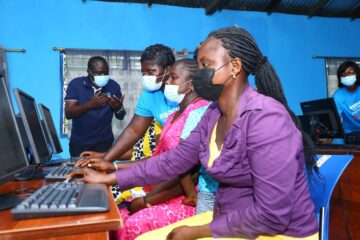I Invoke the Waris Shah
ਅੱਜਆਖਾਂਵਾਰਸਸ਼ਾਹਨੂੰ!
ਅੱਜਆਖਾਂਵਾਰਸਸ਼ਾਹਨੂੰਕਿਤੋਂਕਬਰਾਂਵਿਚੋਂਬੋਲ !
Aj aakhkha warish shah nu, kito qabraan vicho bol
ਤੇਅੱਜਕਿਤਾਬੇ-ਇਸ਼ਕਦਾਕੋਈਅਗਲਾਵਰਕਾਫੋਲ!
Te aj kitaabe ishq daa, koi agla warkha khol
ਇਕਰੋਈਸੀਧੀਪੰਜਾਬਦੀਤੂੰਲਿਖਲਿਖਮਾਰੇਵੈਣ
Ek royi sidhi punjab di, tu likh likh maare wain
ਅੱਜਲੱਖਾਂਧੀਆਂਰੋਂਦੀਆਂਤੈਨੂੰਵਾਰਿਸਸ਼ਾਹਨੂੰਕਹਿਣ:[1]
aj lakhaan dhiyan rondiyan, tenuwarish shah nu kain
ਅੱਜਸੱਭੇਕੈਦੋਬਣਗਏ, ਹੁਸਨਇਸ਼ਕਦੇਚੋਰ
Aj sabhey qaido ban gaye, husnishq de chor
ਅੱਜਕਿਥੋਂਲਿਆਈਏਲੱਭਕੇਵਾਰਿਸਸ਼ਾਹਇਕਹੋਰ
Aj kithon liyaiye labh ke, warish shah ekhor
ਅੱਜਆਖਾਂਵਾਰਸਸ਼ਾਹਨੂੰਤੂੰਹੇਂਕਬਰਾਂਵਿਚੋਂਬੋਲ !
Aj aakhkha warish shah nu, kito qabraan vicho bol
ਤੇਅੱਜਕਿਤਾਬੇਇਸ਼ਕਦਾਕੋਈਅਗਲਾਵਰਕਾਫੋਲ !
Te aj kitaabe ishqdaa, koi agla warkha khol
Today I Invoke Waris Shah
Speak from the depths of your grave,
To Waris Shah I say,
and add a new page to your saga of love, today
Once wept a daughter of Punjab[2],
your pen unleashed a million cries,
A million daughters weep today,
to you Waris Shah they turn their eyes,
Arise, o friend of the afflicted; arise and see the state
Despoilers of beauty and love,
each man now turned a Kedu,
Where can we seek for another like Waris Shah today?
Only you can speak from the grave, to Waris Shah I say
- Amrita Pritam (1948)
In her compelling poem, I Invoke the Waris Shah, the legendary Punjabi Indian poet Amrita Pritam penned down the plight of women during the Partition of India- the largest displacement of people in human history. In this poem, she invokes the legendary Sufi poet Waris Shah – who wrote the famous love saga “Heer” which was about the heart-wrenching separation of two lovers; Heer and Ranjha. Pritam takes a political spin on Waris Shah’s “Heer”. To her,“Heers” are the daughters of the state, the millions who were exposed to the gruesome horror of partition, rape, adduction, captivations and some were never returned to their families
Pritam’s life and her writings were her politics. She lived by the adage, “personal is political”! As a writer, who was way ahead of her time and not in the least, a populist, she defied every patriarchal norm that tried to bind her, and did so very consciously. She saw in the structures of the state, the structures of patriarchy. And this is why her writings continue to be one of the most powerful representations of ‘everyday violence’ and discrimination being faced by women across the world. It is imperative to remember that violence comes in many forms – and she wrote this particular one as her Ode to Waris Shah.
The year was 2012 – in the chilly winter of Delhi the infamous gruesome Delhi Bus Rape incident shook the entire collective conscience of the nation. I (Radhika) and Jot Prakash Kaur Hundal initiated the Stand Sign for a Safe Delhi Campaign, that gained extensive public support, covered by the media, unleashed the power of youth social media activism, for stricter laws, speedy conviction rate and even penalties. 8 years passed by the victim’s mothers Asha Devi echoed – “she loses hope every day” but the convicts will be hanged no matter what they do.
The day was 19th March 2020, Today, when we both (Ankita and myself) pen down this write up as our Ode to the Delhi Rape Victim who was called Nirbhaya – The Fearless One, as her culprits are hanged to death.
We dedicate this write up to all the Asha Devis who have lost their daughters of the state to rape. In India it is 1 woman reports a rape every 15 minutes on average.
Our struggles are coupled with our Spaces – right from our home, work and in public – we continue to struggle for a safe, secure and more so liberated spaces. This write up is not a whining of a woman – but we are living in complete denial or are celebrating the uncelebrated. Hence outlining critical reflections including sharing of one’s self experience and narrative as done by Amrita Pritam.
The Bedroom and the Public Space
We are talking about “equal” access to spaces – from board room to bedroom, but strongly feel we should transcend towards “safe and secure” access at work, homes and streets, The constant struggle by a woman on free access to streets, spaces and equality in one’s own bedroom – translates to everyday form of violence.
- Sexual Violence, Marital Rape – 1 in 3 women worldwide
- Forced Sex- 15 million adolescent girls (aged 15 to 19) worldwide
- Highest Number of Rapes – South Africa, Sweden
- Street Harassment – 99% in Egypt and 65% of women in United States
- Sexual Assault – 1 in 4 women during their lifetime in North America
- Sexual Harassment Public Spaces – 64% of women in United Kingdom and 86% in Brazil
- Violence in Public Transport – 90% of women and girls in Papa Guinea[1]
The data on martial rape is one of the most contested ones, in some countries it is considered not even an offense, and hence the women continue to struggle to seek claim on her body – the first private space which gets violated every day. As the month of February is for celebrating love and March is for celebrating women! That is the kind of homogeneity that global capitalism has encapsulated us in. Horrific tales of everyday violence against women in different parts of the world is periodically punctuated with enthusiastic Women day celebrations! One wonders however, if they should be worried that these celebrations normalize the forms of violence that women face each day? Is there anything to celebrate just as yet, except our struggles so far, and the struggles that remain ahead of us? Reflect – we leave these questions as the answers lies within us, after all, we as sociologists can state the actual social facts – solutions have to emerge by raising our collective conscience. After all the very men who control these private spaces actually are occupants of the public spaces of control and ownership.
The Board Room: Silent Space of Control and Ownership
Each year, almost like clockwork, the moment 8thMarch approaches, we have a plethora of companies with their self- proclaimed marketing campaigns on women empowerment. This year many private companies are drum rolling on the 50-50 % women inclusion in their respective workforce. Suddenly, you see initiation of sustainability programs, or social responsibility programs on women led by men, who happen to have no women leading these programs. The condescending element is so vivid that by doing these programs you show your concern on gender diversity but neglect the equivalent space that your peer “woman” fellow requires.
Ironically this year, we also witnessed the hard-hitting Global Gender Gap Report 2020 – breaking the illusion of the SDG5 progress and all the women led programmes – a hoax as it clearly established that, it would still take us 257 years more to close the Gender Gap!!
- No country has achieved Gender Parity.
- Global average of woman’s income is about $11,000 (in Purchasing Power Parity, PPPs) while the average income of a man is $21,000 (in PPPs (WEF, 2020). .
- Only 55% of women are actively engaged in the labour market. This means that over 30% of the global labour force participation gender gap has yet to be close by.
- Only 18.2%1 of firms globally are led by a woman
- Only 27% of managerial positions were hired by women across worldwide.
Harsh Reality Check!!! Mere inclusion into work force does not imply any sort of empowerment let alone participation.
The so- called rankings in Gender Diversity Index by companies implies that we are rejoicing a patronizing attitude, or a favor to have been included in the work force because we are Women.
Empowerment – in its true essence implies “Power” – to make decisions or be in a position to create an impact.
And in most work spaces, women struggle to mark a position amidst the patriarchal power dynamics. I along with many of my female counterparts back in India have closely witnessed the prudent Indian Private Sector Power Patriarchy – we have hired you, so you need to follow; we will still control you. In fact, I even witnessed a blatant statement on my face “Don’t express!”. The patriarchal power dynamics transcends into insecurities especially when you are a woman who is intelligent, speaks her mind. In spite of her being qualified in every way she still fails to have a voice in any official meetings let alone board rooms. There occurs a very distinct form of power-based dynamics which is intended to jolt your confidence completely. Trust me it is one of the worst forms of feeling that you witness, especially when you are told simply “Get out”.
I am known to be one of the boldest voices across my peer network, and today with this write up I would like to admit that I did go through this experience and I empathize today with all those women who don’t have a voice. I used to always question their principles, when I used to hear such incidents that why is she going through this? But when it happened with me, I could relate it completely, it is a constant struggle that you go through – is this mere bullying? or power play? I was told it’s the usual way, they will push you to your limits to test you. Period. That’s how the system works.
In India, I find we place too much emphasis to ‘position based power status’, so much that the person holding such roles cherish the ‘no one can do anything’ feeling– a blatant sign of systemic failure. In all this, I found that it was not so much the men but the women who let you down by upholding the hierarchical set up. You would also therefore witness that soft departments such as Human Resources, Training, Learning and Development and Communications, CSR are largely then led by women. The ones in Manufacturing, hard core Operations, Sales are seen as aggressive fields, coupled with high attrition rates too.
We actually don’t need Women’s day celebrations, instead, we require a transformative systemic change in the way our men perceive women and also how women perceive each other – in workspaces, private space and public spaces. Please this is not a men bashing write up it is a reflection on how we perceive the women of our states. Apart from the so- called gender diversity conferences, summits, indexes, it is the day to day dealing with women as their counterparts that reflect true forms of inclusivity.
We still have committees, panels, working groups and departments that are not adequately represented by women. When we voice these aspects, it is termed as if we want to make an entry to an all exclusive Boy’s club!! That’s not the aim at all, but when you have a mandate in a country like India, to ensure that at least one independent woman director has to be on the board, yet receive an overall representation, as low as 13 percent – you need to fight for that space, as the men are definitely not prepared to provide you with one.
If in the year 2020, we are still displaying the equality signs then there is a drastic systemic failure around us, women are citizens and equality is an inherent fundamental right. If we have men patronizing and promoting women programs health, safety, security but at the same time, are not able to handle women in their teams – we need a mindset change.
We need equality in perception, accessibility to spaces in a same manner as men do, openness for strong women voices and not get intimidated by them. Women constitute 50% of the populations yet it will take us 9 generations (more than 200 years) to ensure that “equal sign” gets transformed into reality. Also, let’s acknowledge the fact that Gender Parity is also a Power Patriarchy which will take these many years to overcome.
Celebrate but Reflect and Act now, as sociologists we can only ask you to reflect – to the Men I would say (Indian men in this case) – learn to be surrounded by strong women voices, engaging with these strong and confident female voices would enable you to act like a man. Pretending that bullying them into silence makes you more of a man is genuinely a passé .
For us women like Asha Devi will continue to inspire us and keep us moving forward, we hope today the mother has finally receives the justice she craved for our daughter. However, the Nirbahyas continue to rise in the board and the bedrooms……..
About the Authors
Ankita Mookherjee is a Sociologist and teaches at a University, in India. She is overtly critical and that makes her unpopular with men.
Radhika Ralhan is a social impact fellow, is upfront and has a voice of her own, as such is even more unpopular with men.
We however thank few men in our lives who partnered with us across our personal and professional lives – and heard our Voice. The views expressed in the write-up are based on the authors experiences and own perspectives, it does not reflect any ideas, or reflections, or standpoint of any organization.
[1]https://www.punjabi-kavita.com/Lammian-Vatan-Amrita-Pritam.php#Lammian1
[2]Punjabi s a state in India – Waris Shah wrote his love saga on “Heer” in Punjab.
[3 ]https://www.cnn.com/2017/11/25/health/sexual-harassment-violence-abuse-global-levels/index.html



